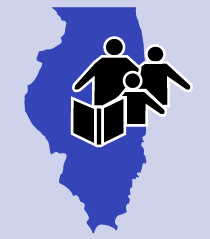Simple signs can help parents and young children communicate feelings or desires and decrease frustrations for all involved.
“Signing with babies is based on the simple observation that children can be taught to use their hands to “talk” long before their mouths can catch up.”
– American Academy of Pediatrics Heading Home with Your Newborn, 2020
Everyday EI: Communication
Encouraging Language Development with Simple Signs

Learning begins at birth and includes all interactions between a baby and the world around them. A mother’s calming voice, a sister’s squealing laughter, and a grandfather’s noisy yawn all provide cues to young children that become the foundation of communication.
Communication in young children takes on many forms. Infants communicate by displaying emotion, such as crying. Toddlers utter simple sounds and often point. Gestures and sounds lead to first words. Learning to talk using a shared language opens a whole new world for children.
It’s important to start with simple signs and use them consistently with your young child. It may take some time for them to begin using simple signs. Give it time and make it fun. The smile on your child’s face when you finally understand what they’ve been trying to tell you is worth it!
How I Communicate

Although they may not say their first word for almost a year, babies communicate with you immediately. Their behaviors, including eye contact, hand movements, and body positioning, convey their thoughts and feelings. As caregivers, you can “study” your baby by listening, watching, and responding to him or her. Below is a list of ways your baby is communicating
with you.
Children birth to 6 months old
- I cry to let my caregiver know what I need.
- I show my distress by sucking on my hand or turning away.
Children 6 to 12 months old
- I begin to understand social gestures.
- I wave bye-bye.
What is a Child Life Specialist?
Some early intervention families may experience a child’s hospitalization at some point in their parenting journey. Children may view the hospital as a scary, unfamiliar place that can cause them to be overcome by anxiety. However, Certified Child Life Specialists (CCLS) can provide developmentally appropriate interventions such as play, preparation for procedures, and effective teaching that helps children reduce their fears and anxieties. Play is a child’s most powerful tool and can help normalize the hospital experience.
There are many play opportunities CCLS can offer hospitalized children. CCLS can use play toto help children of help children of all ages to engage their feelings, cope with the past and present, and adapt to new experiences. Child Life Specialists will also use play as a tool to help children and their family understand what may happen during their visit or stay.
The transition into a hospital can be challenging for most families. Child life services using play preparation, interventions, coping techniques, and resources help their hospital experience to be less scary.
Recommended Books and Resources
Enter our Giveaway!
Spring Newsletter Prize Package
Complete the entry form below for a chance to win a prize package from the Clearinghouse!
All entries received by 5/31/24 will receive a gift in the mail.
The winner can choose the preferred language for books.

Important System Updates
The State Systemic Improvement Plan (SSIP) Update
The eight leadership teams are meeting regularly and developing their action plans. All sites continue to assess their area’s capacity-building needs and raise awareness of SSIP activities. Each area’s plan is individualized to address the needs of the children, families, and providers in their area.
Each of the new teams is taking a slightly different approach towards the initial goal of improving the child outcomes summary process. Current areas of focus include improving meeting facilitation, expanding understanding of typical child development, and providing child outcomes summary training to local teams.
While the new sites are primarily focused on the child outcomes process, the original sites are turning their attention to family engagement. The family engagement work will center around the use of the Pyramid Model in early intervention. Pyramid overviews have begun for the original leadership teams. After those are completed, teams will do some additional planning and begin their training on this model.
If you have any comments or questions about the Plan, please email Chelsea Guillen at cguillen@illinois.edu.
IDHS Requests Public Comments for Proposed Changes to Early Intervention Rules
Full announcement is available on the IDHS website.
The Illinois Department of Human Services (IDHS) is proposing changes to the Early Intervention Program Administrative Code. The proposed changes specifically relate to the Family Fee Sliding Schedule outlined in Section 500.APPENDIX A, as well as adjustments to the language concerning the definitions of “Extended Services” and “At risk for substantial delay” in Section 500.20.
IDHS is requesting public comments on these proposed changes. Comments will be accepted until the close of business on Friday, April 26, 2024 and may be submitted by email at DHS.EIQuestions@illinois.gov , by fax at 217/782-4890, or in writing to:
Illinois Department of Human Services
Bureau of Early Intervention
823 East Monroe Street
Springfield, IL 62701
Upcoming Events
Early Intervention Family Town Halls (Virtual)
The Director of the Bureau of Early Intervention is hosting a series of four virtual town hall events for families of children in early intervention. During this time, you can share your experiences, ask questions, and voice your suggestions to improve early intervention.
REGISTER BY completing this form OR contact Sarah Isaacs, Email: isaacs@illinois.edu or Phone: 217-265-6875.
Upcoming Town Hall:
Tuesday, May 7, 2024
English/ASL/Inglés – 6:30 – 7:30 PM
Spanish/Español – 7:30 – 8:30 PM
Remaining 2024 Meeting Dates:
Wednesday, September 4, 2024
English/ASL/Inglés – 9:30 – 10:30 AM
Spanish/Español – 10:30 – 11:30 AM
Thursday, November 7, 2024
English/ASL/Inglés – 6:30 – 7:30 PM
Spanish/Español – 7:30 – 8:30 PM


